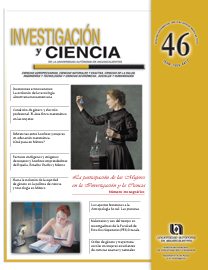Endogenous and exogenous factors of women and men entrepreneurs in Spain, the United States and Mexico.
Abstract
This research identifies the endogenous and exogenous factors of women and men entrepreneurs in the constitution of their companies, as well as the use of technology in the same. A questionnaire was designed with the endogenous dimensions of motivation and opportunities; in the exogenous dimension, the entrepreneurial culture is considered; as well as variables of the use of electronic media, educational level and business training. The samples were collected in Andalusia, Spain, Mexico City, Mexico and South West Border Texas, United States, with a total of 300 entrepreneurs, 100 from each country. In the endogenous variables, women scored higher than men. In the exogenous factors, there have only been differences in the importance attributed by entrepreneurs to educational programs and having access to financing, where, likewise, women have obtained higher average values than men.
Downloads
References
ALONSO, I., El Enfoque Integrado de Género. Políticas de igualdad de oportunidades entre hombres y mujeres en la Junta de Andalucía. España: Instituto Andaluz de Administración Pública, 249, 2003.
ALSOS, G. A., ISAKSEN, E. J., y LJUNGGREN, E., New
Venture Financing and Subsequent Business Growth in Men- and Women- Led Businesses, Entrepreneurship Theory and Practice. Vol 30, no. 5, 667-686, 2006.
ASTELARRA, J., Igualdad de Oportunidades en las Relaciones de Género. Políticas de igualdad de oportunidades entre hombres y mujeres en la Junta de Andalucía. España: Instituto Andaluz de Administración Pública, 249, 2003.
BIRLEY, S., MOSS, C., y SAUNDERS, P., Do Women Entre-
preneurs Require Different Training, American Journal of Small Business. Vol 12, no. 1, 27-35, 1987.
BLAKE, M., Gendered Lending: Gender, Context and the Rules of Business Lending, Venture Capital. Vol. 8, no. 2, 183-201, 2006.
BRUNI, A., GHERARDI, S., y POGGIO, B., Doing Gender,
Doing Entrepreneurship: Ethnographic Account of Intertwined Practices, Gender, Work and Organization. Vol. 11, no. 4, 406-429, 2004.
CÁRDENAS, M. J., Mujeres emprendedoras y los beneficios del desarrollo sustentable en proyectos de inversión, Revista Ostara, Universidad Autónoma de Aguas- calientes, núm. 1 y 2, época 1, 119-120, 2009.
CASTAÑO, C., Tecnología, Mujer y Trabajo. Políticas de igualdad de oportunidades entre hombres y mujeres en la Junta de Andalucía. España: Instituto Andaluz de Administración Pública, 249, 2003.
DJANKOV, Simeon, et al., Entrepreneurship in China and Russia Compared, Journal of the European Eco- nomic Association. Vol. 4, no. 2-3, 352-365, 2006.
EDDLESTON, KIMBERLY A., y POWELL, G. N., The Role of
Gender Identity in Explaining Sex Differences in Business Owners´ Career Satisfier Preferences, Journal of Busi- ness Venturing. Vol. 23, no. 2, 244-256, 2008.
GBOR, J. O., Mythicizing and Reification in Entrepreneurial Discourse: Ideology-Critique of Entrepreneurial Studies, Journal of Management Studies. Vol. 37, no. 5. 605-635, 2000.
INC, Extra! Extra! Men and Women are Different, Inc, The Daily Resource for Entrepreneurs. Octubre 1, 1994.
MASTERS, R. y MEIER, R., Sex Differences and Risk-Taking Propensity of Entrepreneurs, Journal of Small Business Management. Vol. 26, no. 1, 31-35, 1988.
SÁNCHEZ-APELLÁNIZ, M., Mujeres Empresarias y Directivas. Políticas de igualdad de oportunidades entre hombres y mujeres en la Junta de Andalucía. España: Instituto Andaluz de Administración Publica, 249, 2003.
SWINNEY, J. L., RUNYAN, R. C., y HUDDLESTON, P., Differences in Reported Firm Performance by Gender: Does Industry Matter?, Journal of Developmental Entrepreneurship. Vol. 11, no. 2, 99-115, 2006.
Downloads
Published
How to Cite
Issue
Section
License

This work is licensed under a Creative Commons Attribution-NonCommercial-ShareAlike 4.0 International License.
Las obras publicadas en versión electrónica de la revista están bajo la licencia Creative Commons Atribución-NoComercial-CompartirIgual 4.0 Internacional (CC BY-NC-SA 4.0)





